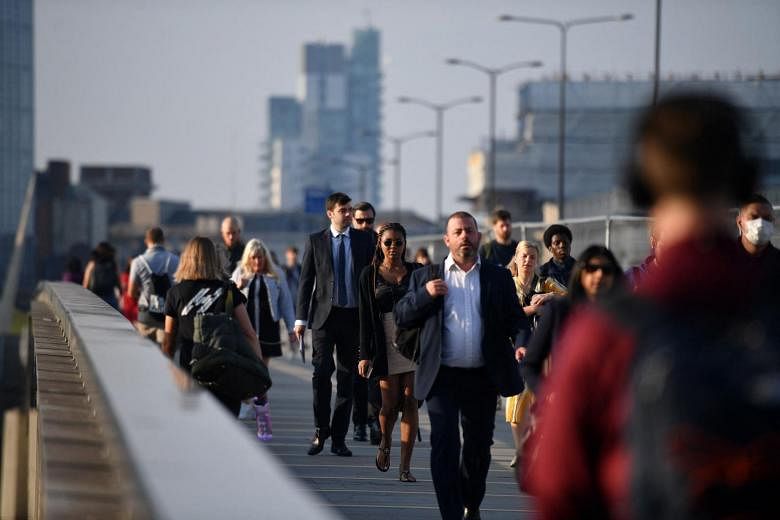LONDON (NYTIMES) - After 18 months during which it subsidised 11.6 million jobs, Britain's government-funded furlough programme ended on Thursday (Sept 30), along with some other pandemic relief measures.
While it marked another milestone in Britain's efforts to put the pandemic in the past, the country is experiencing a slowing economic recovery and increasingly severe supply chain disruptions.
Facing this uncertain recovery, the government on Thursday announced a new pot of money to support families as the country heads into what is expected to be a hard winter, with rising energy prices, higher inflation and cuts to benefits for millions of people.
Beginning this month, the local authorities can distribute money from a £500 million (S$914 million) fund to households that need help paying for essential items such as food, clothing and utilities.
The fund "will provide a lifeline for those at risk of struggling to keep up with their bills over the winter, adding to the support the government is already providing to help people with the cost of living," Chancellor Rishi Sunak said in a statement.
For the Conservative government, the furlough programme was a dramatic intervention. It helped pay up to 80 per cent of wages for millions of people whose work schedules were cut throughout the pandemic and stopped unemployment spiking higher during lockdowns.
By mid-August, it had cost nearly £69 billion. At its peak, about nine million people were on the programme, nearly a third of Britain's workforce. The Resolution Foundation, which studies living standards, estimates that about one million people were still on furlough as the programme ends.
Many analysts expect unemployment to rise even though job vacancies in Britain have climbed to a record high. There is a mismatch between the kinds of jobs that need filling and the skills held by people available to work, creating an unexpected labor market quandary.
But now the Treasury is trying to shore up its finances, looking for ways to raise tax revenue and cut spending. Grants for self-employed workers are also ending on Thursday, and VAT, a type of sales tax, will be increased for hospitality, hotel and leisure attractions. The government is also ending a £20-a-week increase to a major government benefit programme, Universal Credit, which will affect more than five million people.
The Joseph Rowntree Foundation, a charity dedicated to ending poverty, is one of many organisations that have urged the government not to end the extra Universal Credit benefit. On Thursday, it said the new £500 million fund was an inadequate alternative.
"The support available through this fund is provided on a discretionary basis to families facing emergency situations," Ms Helen Barnard, the charity's deputy director, said in a statement. "It does not come close to meeting the scale of the challenge facing millions of families on low incomes as a cost-of-living crisis looms and our social security system is cut down to inadequate levels."
Last week, Business Secretary Kwasi Kwarteng said many households could experience a "very difficult winter". Already, some commentators have compared the long lines at gas pumps, higher inflation and product shortages in supermarkets to the dreary days of the 1970s in Britain, which ended in the so-called Winter of Discontent.

